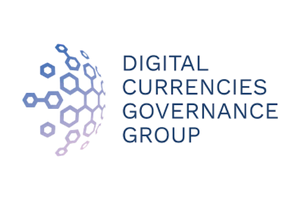Digital Currencies Governance Group (DCGG) is a Brussels-based lobbying and trade association founded in 2020, representing digital asset issuers and service providers across the UK, EU, LATAM, and UAE. The organization’s core mission is to facilitate dialogue between policymakers and digital currency experts to promote a sound, proportionate, and innovation-friendly regulatory framework for digital currencies and crypto-assets. DCGG advocates for raising awareness among European political representatives and member states about the role and opportunities of digital currencies, including stablecoins, blockchain technology, and self-sovereign identity management.
DCGG focuses on addressing key challenges such as financial inclusion, traceability, payment efficiency, cyber resilience, and operational payment systems. It seeks to promote collaboration between political representatives and avant-garde digital currency experts to explore governance, transparency, tokenization, legal solutions, and risk management related to Central Bank Digital Currencies (CBDCs) and other digital assets. The group supports transparent and inclusive models for digital currency implementation and innovation enhancement.
The lobbying firm targets significant EU legislative files, including the Markets in Crypto-assets (MiCA) regulation, digital operational resilience for the financial sector, amendments to financial instruments directives, and anti-money laundering and counter-terrorism financing (AML/CFT) legislative packages. DCGG represents prominent members such as Tether (largest stablecoin issuer worldwide), Ledger (custodian service provider), Bitfinex (crypto exchange), and Iden3 (self-sovereign identity management).
DCGG operates from its head office in Brussels and provides extensive political and regulatory monitoring, advocacy support, and communication services to its members. It emphasizes a light-touch regulatory approach where appropriate, advocating for regulatory clarity and proportionality that considers the diversity of crypto-asset activities and business models. The group actively engages with EU policymakers, regulators, and international bodies like the Financial Stability Board (FSB) to contribute to the development of global crypto-asset regulatory frameworks.
Since its registration in the EU Transparency Register in September 2020, DCGG has maintained a small but dedicated team of lobbyists and legal advisors who work full-time to represent its members’ interests. The organization also networks with various affiliated and external organizations to strengthen its advocacy efforts in the digital currency policy landscape.


